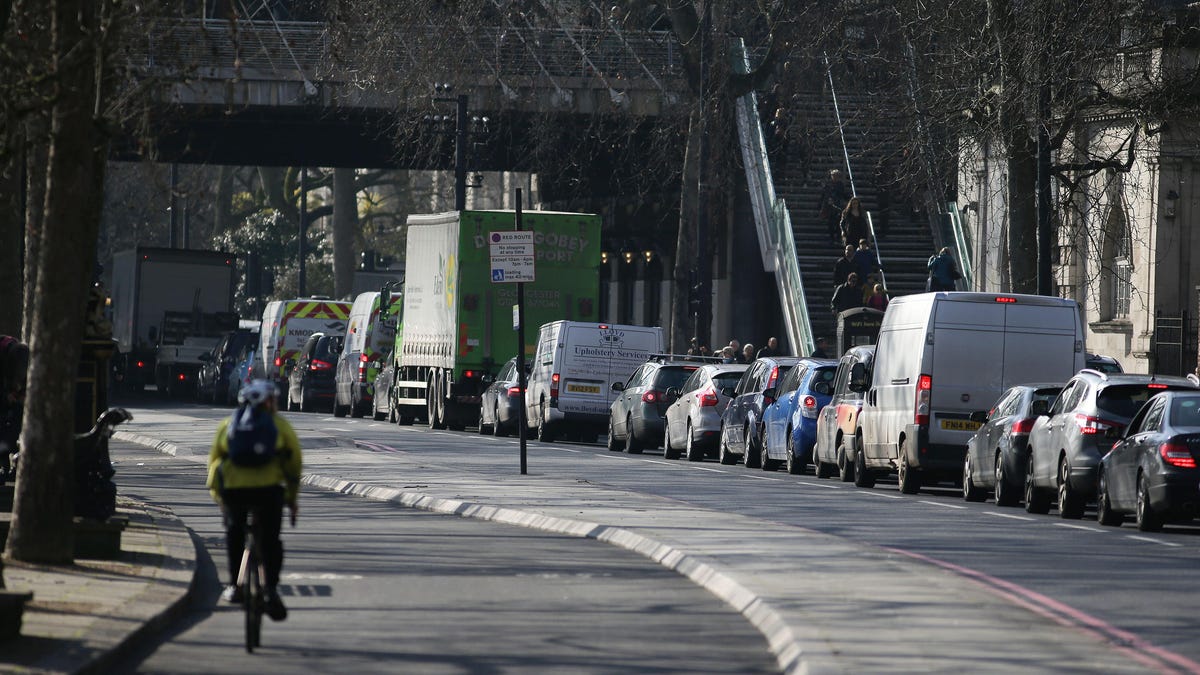UK wants to ban new gas, diesel car sales by 2040
At least this ban is far enough down the road to seem remotely feasible.

The Hot New Thing in Europe right now is to mull whether or not to completely ban gas and diesel vehicle sales in the future. The UK is the latest country to jump on this ban-dwagon.
The British government has called for an end to sales of new gas and diesel vehicles by 2040, it announced in its new clean air strategy, which was published on Wednesday. To help improve things in the near future, the government will offer up more than £200 million ($261 million) for shorter-term efforts like retrofitting buses.
If this was the kind of crap I encountered every morning, I'd want to ban cars, too.
Michael Gove, Britain's environment secretary, told the BBC in an interview that it's a matter of doing the right thing. "We can't carry on with diesel and petrol cars, not just because of the health problems that they cause, but also because the emissions that they cause would mean that we would accelerate climate change," Gove said.
While the plan will certainly reduce noxious emissions in the decades to come, it leaves any short-term actions up to local government. Retrofitting buses may only go so far in helping reduce emissions, which can accelerate the effects of climate change and cause health problems. Air pollution is linked to 40,000 deaths a year in the country, according to the BBC.
The UK is far from the first European government to come to this conclusion. Germany has looked into a similar ban, albeit with a timetable that ends in 2030. France is looking to end gas and diesel vehicle sales by 2040, as well. Venturing farther north, Norway has signaled its intent to sell only electric vehicles from 2025.
It will be up to electric cars to fill the gap. Right now, buyers are still turned off by a lack of range, insufficient infrastructure and middling variety, so it's not like EVs could take the place of internal combustion engines tomorrow afternoon. But decades down the road, when these issues are dealt with, it shouldn't be the toughest transition.

